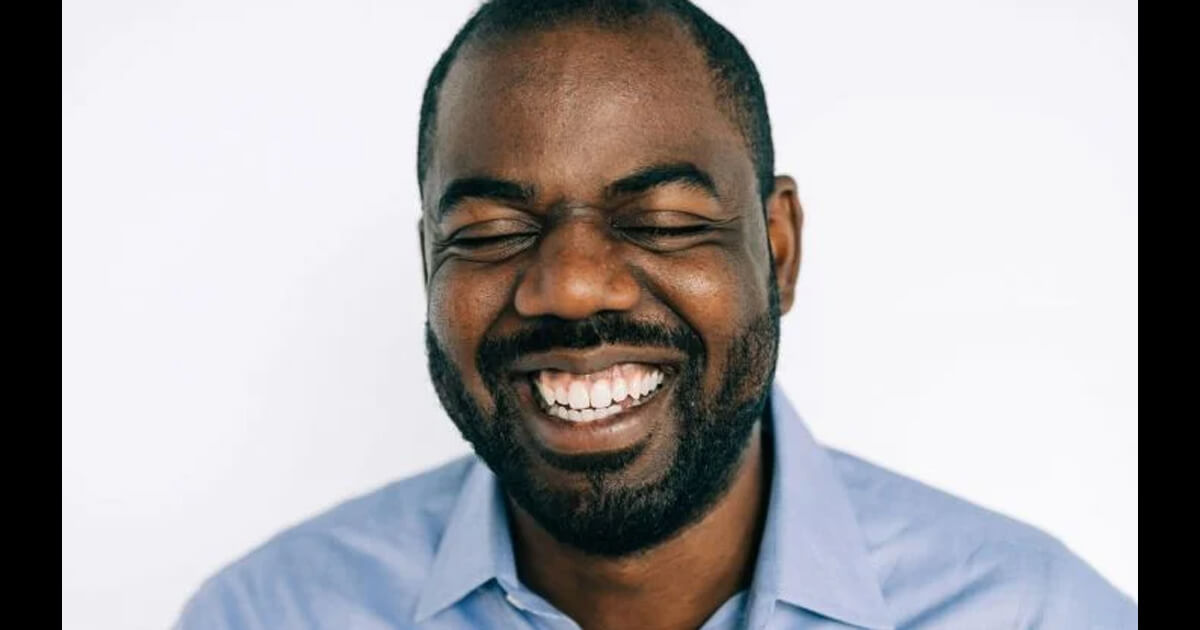When Donnel Baird founded BlocPower in 2013, he dreamed of making buildings greener and more energy and cost-efficient. Eight years later, Baird’s $63 million Series A raise for BlocPower is a long-wrought victory, and his work is just getting started. Since launching in 2013, the financial landscape had been tenuous for Baird.
Leading up to the Series A total funding hovered around $2.2 million, only $300,000 of which was venture backing. A $63 million Series A is impressive for any founder, but for a Black founder, it is especially rare. As a New York City native, Baird is familiar with the financial and environmental toll that inefficient and outdated buildings have on their residents, who skew overwhelmingly low-income, leaving communities of color to bear the brunt of climate change.
Thus, in 2013, Baird’s work started in his native New York by ‘greening’ nearly 1,000 buildings in New York City which save five to 71 percent on their energy cost. When you look at the fact that low-income homeowners may spend as much as 30 percent of their total income on energy cost because their building is so old, inefficient and neglected, that presents an opportunity, Baird told The Plug. In 2009, Baird worked as a consultant on the American Recovery and Reinvestment Act for the Obama administration, hiring and training unemployed union workers to green buildings.
At the time, the prohibitive cost of machine learning models to do anomaly detection to target the most energy inefficient building was a challenge. The Obama administration invested $7 billion in green building technology, it just didn’t work. In green construction we did not have success because of fragmentation, Baird said. The challenge was the government was there but the industry in terms of the private sector, and Silicon Valley was not there, part of that was we needed the technological shift to happen.
As the technology advanced, the cost decreased, allowing BlocPower to create a unique financing structure for building owners to use energy cost savings to pay for retrofitting buildings with energy-efficient products. Our software is built to create green equipment recommendations and return on investment financial projections for 30,000 buildings across New York City, Baird said. That software tool was able to generate a 90% cost reduction relative to competition in terms of accessing a building and generating a green prescription for that building.
Baird captured impact investors and traditional investors, including its largest supporter, Goldman Sachs, by offering up a scalable sustainable technology that made underserved communities the center of its mission. By making doing good by doing well profitable, Baird struck a chord with both camps as greentech solutions continue to seek the balance of social and financial impact. BlocPower had been able to demonstrate early on that their models for greening these buildings was one that simultaneously combined social impact and economic impact, Mitchell Kapor, founder of impact investment firm Kapor Capital told The Plug.
It made sense from an economic proposition and that element was a necessary piece of raising funds for this round and it was convincing for Goldman and others. If you go about it profitably this sort of climate justice work is not concessionary in terms of sacrificing financial returns, Kapor said.
Kapor met Baird in 2013 when Baird was an Echoing Green Fellow and was immediately drawn to his solution and its scalability. A $70,000 check from an angel investor in 2013 was Baird’s first venture backing, followed by a $1.9 million grant from the U.S. Department of Energy in 2015. Kapor Capital, Andreessen Horowitz, and MaC Ventures were among the first disclosed larger firms to fund BlocPower. More than funds, Baird said the coaching and support from these firms is what sustained him and BlocPower.
Now we have the technological and cultural shift because of Black Lives Matter, climate change, and the pandemic, Baird said, creating a perfect storm of events that shifted focus and albeit few funds, to Black founders. Ultimately, the promises of tech companies and financial institutions to provide funding to social equity causes have amounted to little more than performative activism and guilt funding.
To put it generously, there was a moment of awakening for a lot of the venture community as it was for much of white America after the murder of George Floyd, Kapor said. A lot of impulses followed with ‘we should do something’ but not followed up with any kind of skillful means. Kapor cautioned against guilt funding.
When investors make decisions to bring someone into the portfolio for any reason other than it making sense to how they operate, it’s going to backfire, Kapor said. Anyone invested in out of guilt is suspect and has a target on their back ‘you are only here because of X.’ it makes it harder for the person to succeed if they’re not seen as worthy or as being on equal footing. Tackling climate change has provided a common goal of social responsibility and funding to a burgeoning sector.
In 2020 there were 501 million Leadership in Energy and Environmental Design (LEED) certified buildings in the United States, but Baird estimates that only four to five percent of buildings are operating at maximum energy efficiency. The lack of progress has left a largely untapped market for BlocPower and competitors to capture. The funding will help BlocPower enter into low-income areas in 24 cities across the country and begin to build out further capabilities, including carbon capture crypto investments for residents to monetize their carbon offsets and corporate partnerships with companies to green the buildings that house their employees.
Shame on Black founders if we spend all our time building social apps and not taking advantage of this potential opportunity, Baird said. Talent is evenly distributed, which means there are Black and brown geniuses all over this country who are more than capable and qualified to come up with solutions. If you give those people an opportunity, just as I was given an opportunity, we will rise to the challenge and respond.








